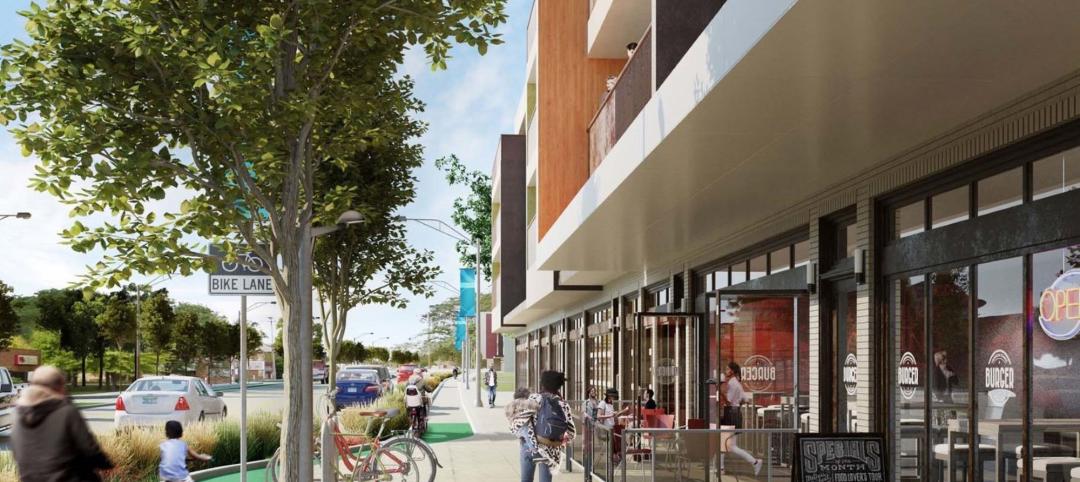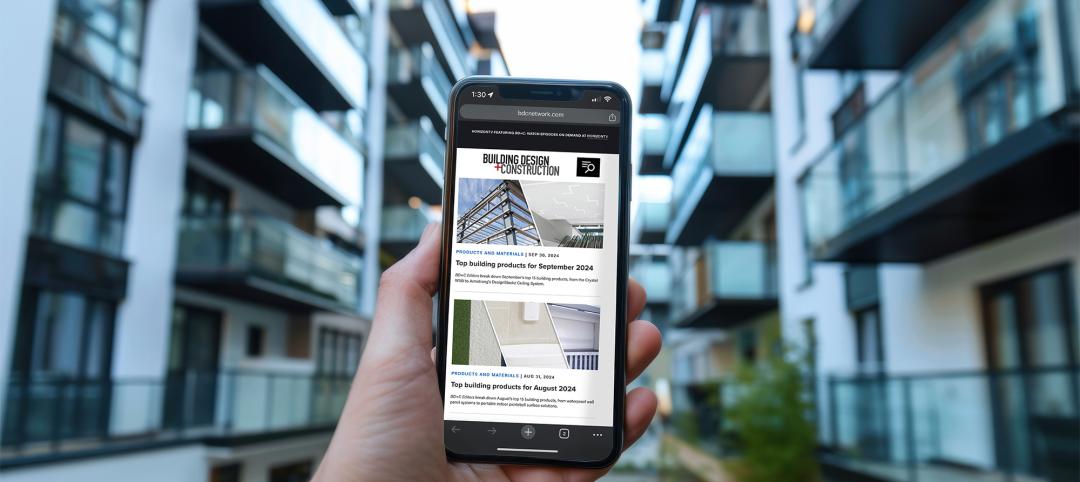Felicite Moorman remembers receiving a call from a multifamily property manager whose building was struggling with its thermostat system. “For one thing, the system wasn’t designed for multifamily; for another thing, the system had very little property management control capability,” she recalls.
The year was 2013, and Moorman was CEO of BuLogics, which specializes in providing wireless solutions for the Internet of Things. Her company had just launched StratIS, a wireless access, energy, and automation control, whose app gives property owners and managers the ability to create setbacks on thermostats and heating systems.
In short order, StratIS has made an imprint on the market. In 2014, it established a partnership with Jonathan Rose Companies, a green real estate policy, development, project management and investment firm, through which StratIS installed its pilot systems. Last year, StratIS struck a partnership with the door hardware manufacturer Schlage, which had introduced its Schlage Control Smart Locks that are designed for multifamily property owners, and whose ENGAGE technology enables lock control from the cloud via mobile applications that are compatible with StratIS’s access platform.
By late November 2015, StratIS had at least one of its products in 72,000 multifamily and hotel units in between 250 and 300 buildings. Moorman tells BD+C that between 14,000 and 20,000 of those units are student housing built by American Campus Communities. StratIS’s products also found their way into student housing developed and managed by Campus Apartments.
StratIS markets its software through distributors, integrators, and installers. “We give them something extra to sell,” says Moorman. She adds that StratIS’s products are relatively easy to install in new builds or renovations, with minimal resident disruption. “We precommission everything, which cuts down on the [complexity] of installation. I also test everything on my seven-year-old, and if she can’t use it, we try to figure out what happened.”
Property managers have the option of allowing renters to download StratIS’s thermostat-control app as part of their lease agreement.
Moorman says the next horizon for StratIS could be key cards, although she concedes there is far greater potential liability using this kind of technology for access into multifamily homes than in hotels. Longer term, Moorman sees opportunities for StratIS developing access- and HVAC-control products for the single-family housing market, which she acknowledges will be more competitive.
Related Stories
MFPRO+ New Projects | Oct 30, 2024
BIG’s One High Line finally reaches completion in New York City’s West Chelsea neighborhood
One High Line, a luxury residential project spanning a full city block in New York’s West Chelsea neighborhood, reached completion this summer following years of delays related to investor lawsuits.
MFPRO+ New Projects | Oct 30, 2024
Luxury waterfront tower in Brooklyn features East River and Manhattan skyline views
Leasing recently began for The Dupont, a 41-story luxury rental property along the Brooklyn, N.Y., waterfront. Located within the 22-acre Greenpoint Landing, where it overlooks the newly constructed Newtown Barge Park, the high-rise features East River and Manhattan skyline views along with 20,000 sf of indoor and outdoor communal space.
Multifamily Housing | Oct 28, 2024
A case for mid-rise: How multifamily housing can reshape our cities
Often referred to as “five-over-ones,” the mid-rise apartment type is typically comprised of five stories of apartments on top of a concrete “podium” of ground-floor retail. The main criticism of the “five-over-one” is that they are often too predictable.
Adaptive Reuse | Oct 22, 2024
Adaptive reuse project transforms 1840s-era mill building into rental housing
A recently opened multifamily property in Lawrence, Mass., is an adaptive reuse of an 1840s-era mill building. Stone Mill Lofts is one of the first all-electric mixed-income multifamily properties in Massachusetts. The all-electric building meets ambitious modern energy codes and stringent National Park Service historic preservation guidelines.
MFPRO+ News | Oct 22, 2024
Project financing tempers robust demand for multifamily housing
AEC Giants with multifamily practices report that the sector has been struggling over the past year, despite the high demand for housing, especially affordable products.
Products and Materials | Oct 17, 2024
5 multifamily tech products for your next project
Multifamily housing and technological upgrades go hand-in-hand. From the rise in electric vehicle charging needs to the sophistication of smart home accessories, tech products are abound in the multifamily space.
Codes and Standards | Oct 16, 2024
North Carolina’s code policies likely worsened damage caused by Hurricane Helene
The North Carolina Legislature’s rejection of building code updates likely worsened the damage caused by Hurricane Helene, code experts say. Over the past 15 years, lawmakers rejected limits on construction on steep slopes, which might have reduced the number of homes destroyed by landslides.
MFPRO+ News | Oct 16, 2024
One-third of young adults say hurricanes like Helene and Milton will impact where they choose to live
Nearly one-third of U.S. residents between 18 and 34 years old say they are reconsidering where they want to move after seeing the damage wrought by Hurricane Helene, according to a Redfin report. About 15% of those over age 35 echoed their younger cohort’s sentiment.
Student Housing | Oct 9, 2024
University of Maryland begins work on $148 million graduate student housing development
The University of Maryland, in partnership with Campus Apartments and Mosaic Development Partners, has broken ground on a $148.75 million graduate student housing project on the university’s flagship College Park campus. The project will add 741 beds in 465 fully furnished apartments.
MFPRO+ News | Oct 9, 2024
San Francisco unveils guidelines to streamline office-to-residential conversions
The San Francisco Department of Building Inspection announced a series of new building code guidelines clarifying adaptive reuse code provisions and exceptions for converting office-to-residential buildings. Developed in response to the Commercial to Residential Adaptive Reuse program established in July 2023, the guidelines aim to increase the viability of converting underutilized office buildings into housing by reducing regulatory barriers in specific zoning districts downtown.
















